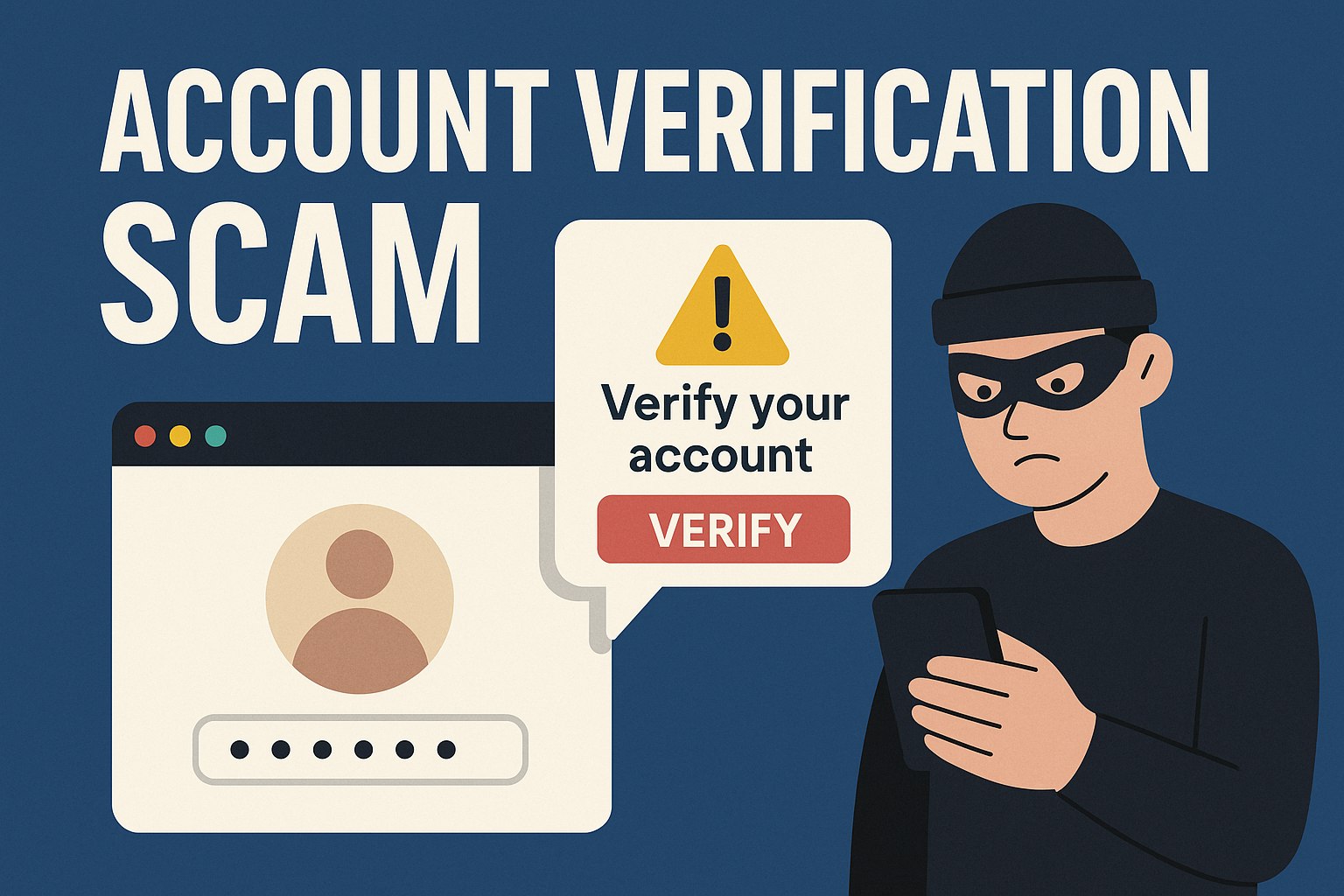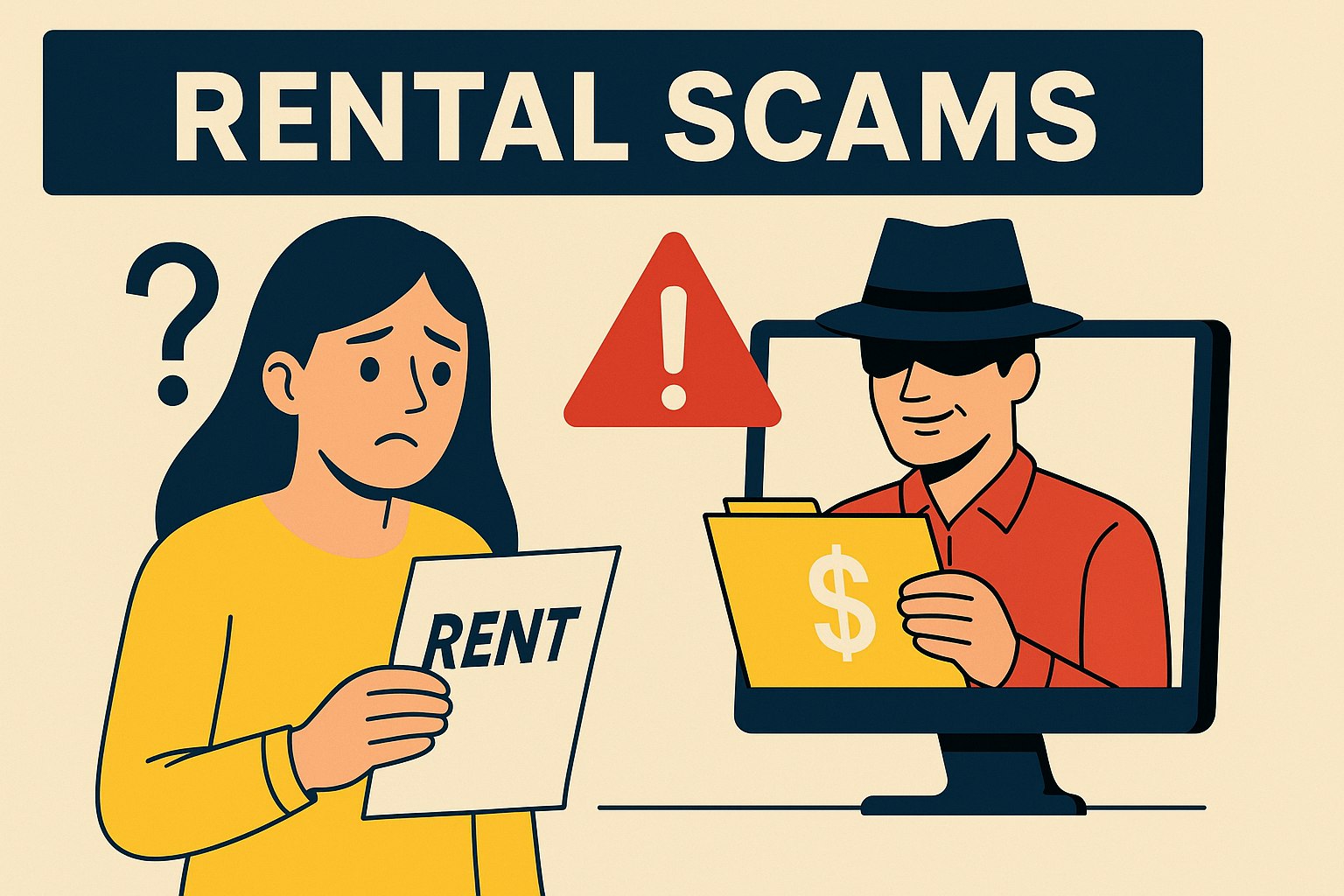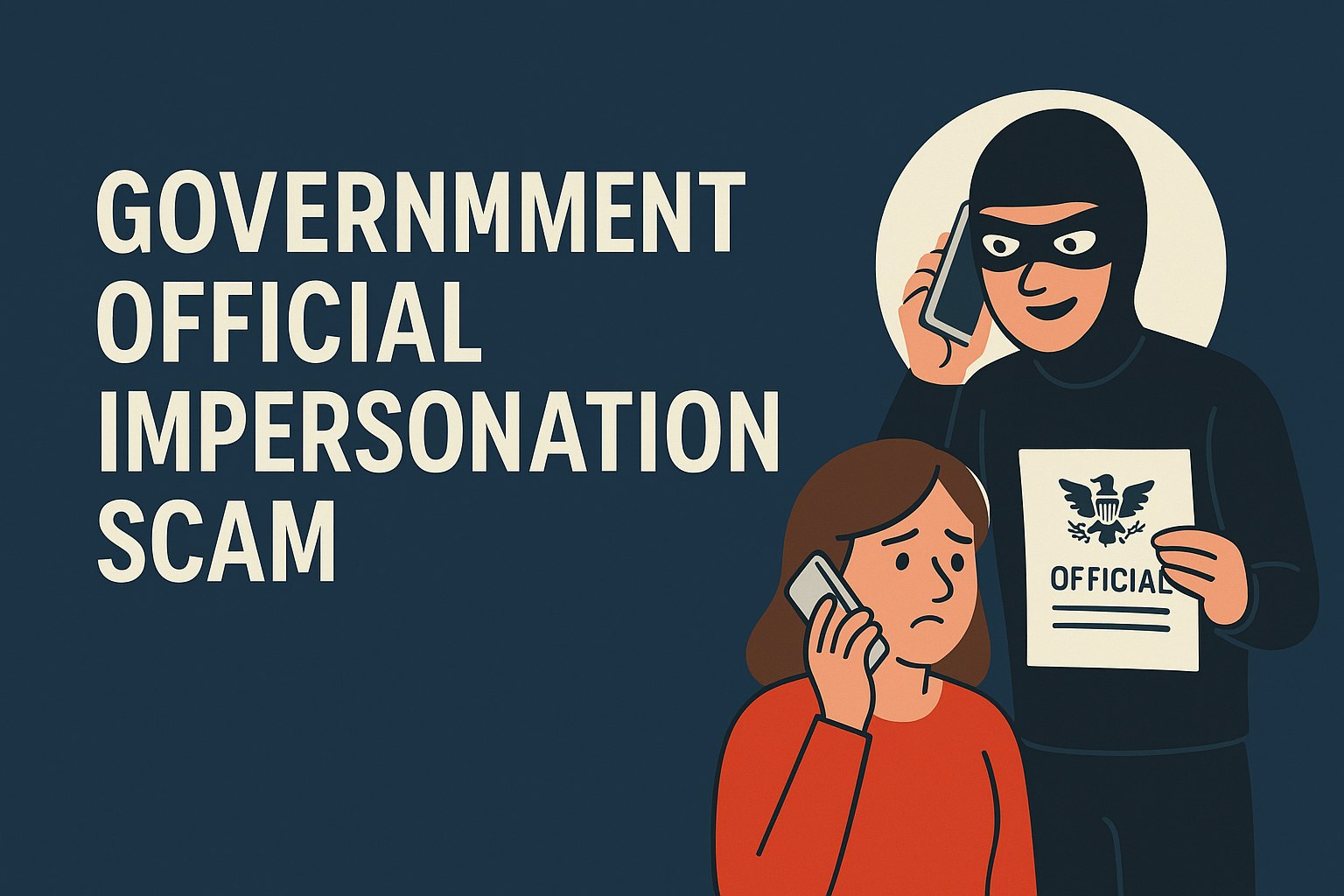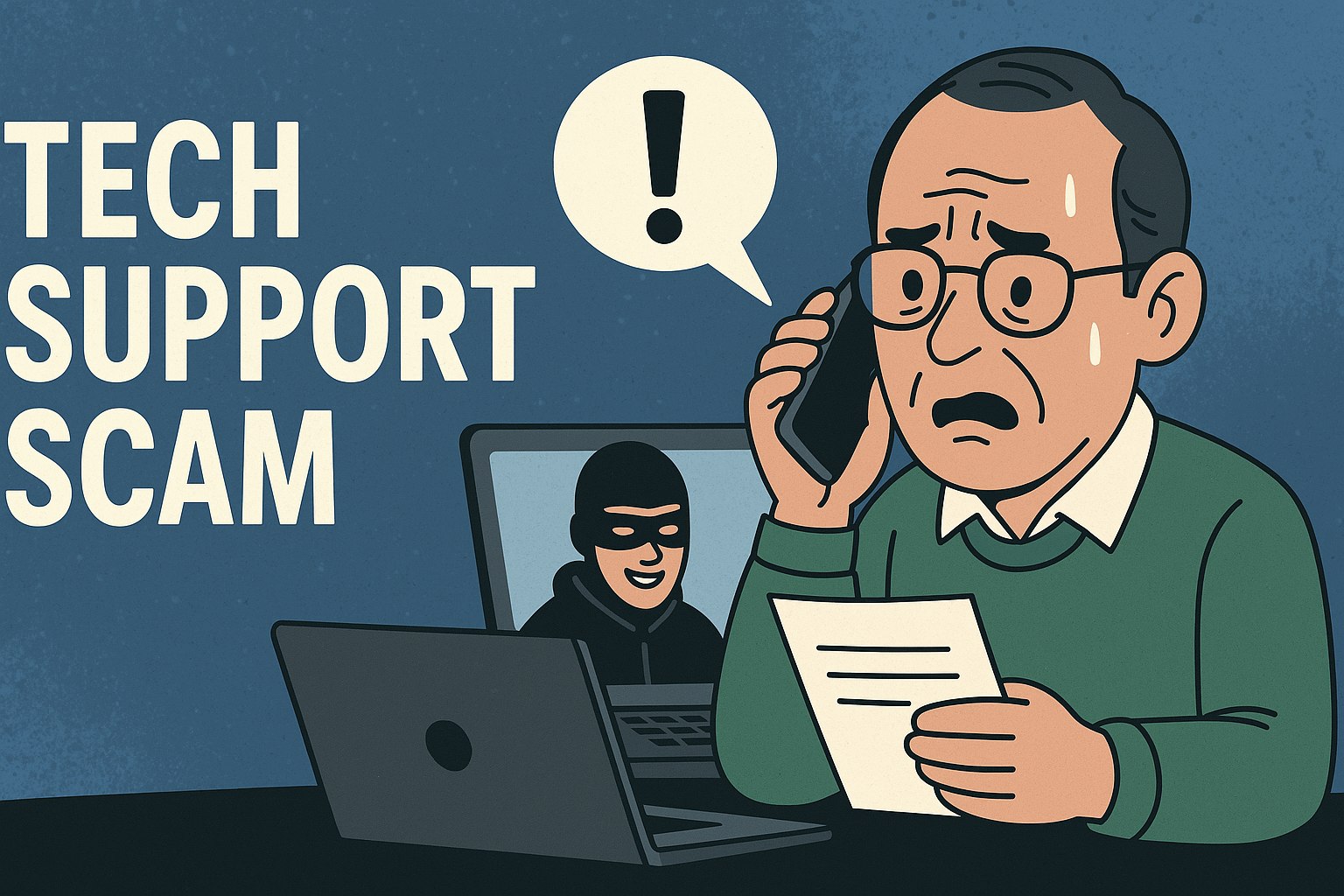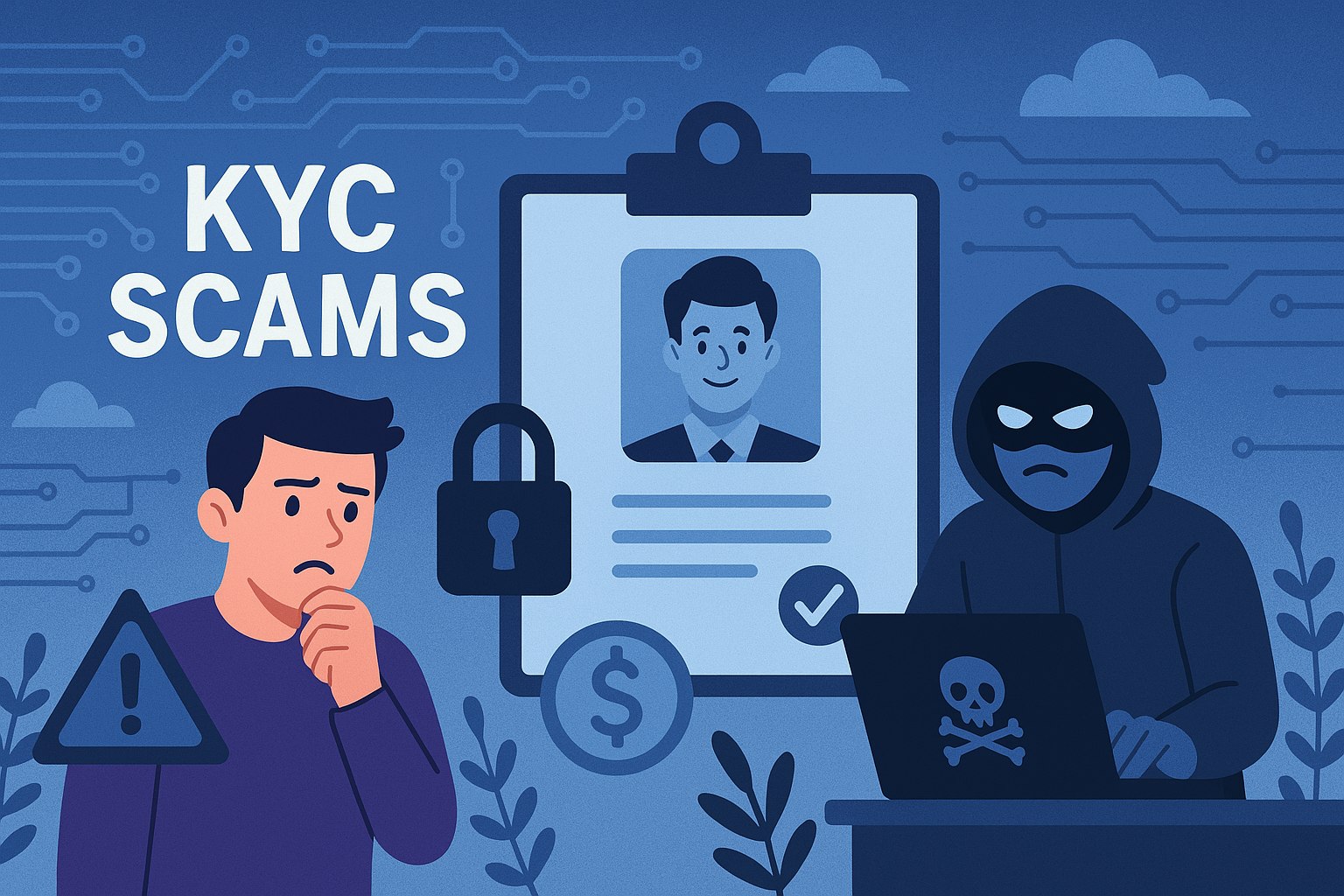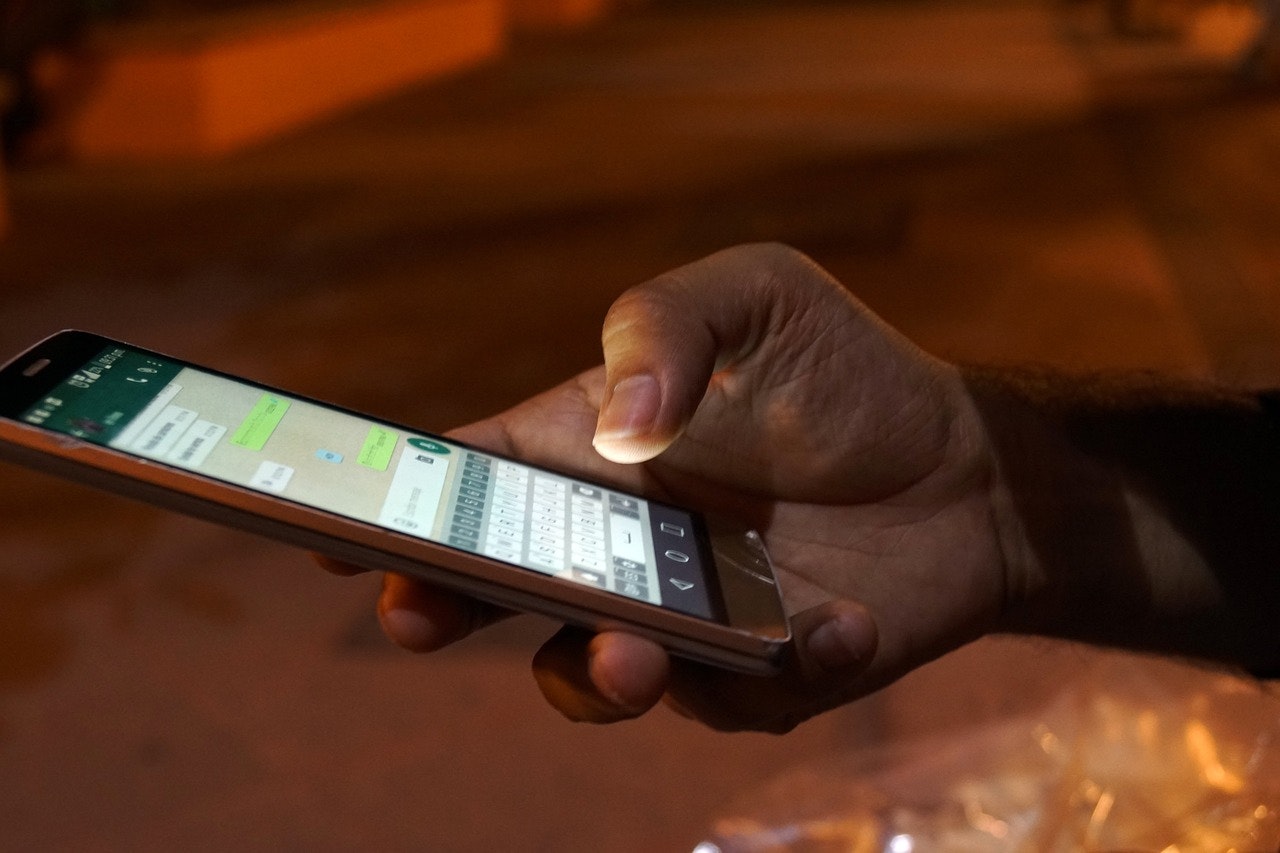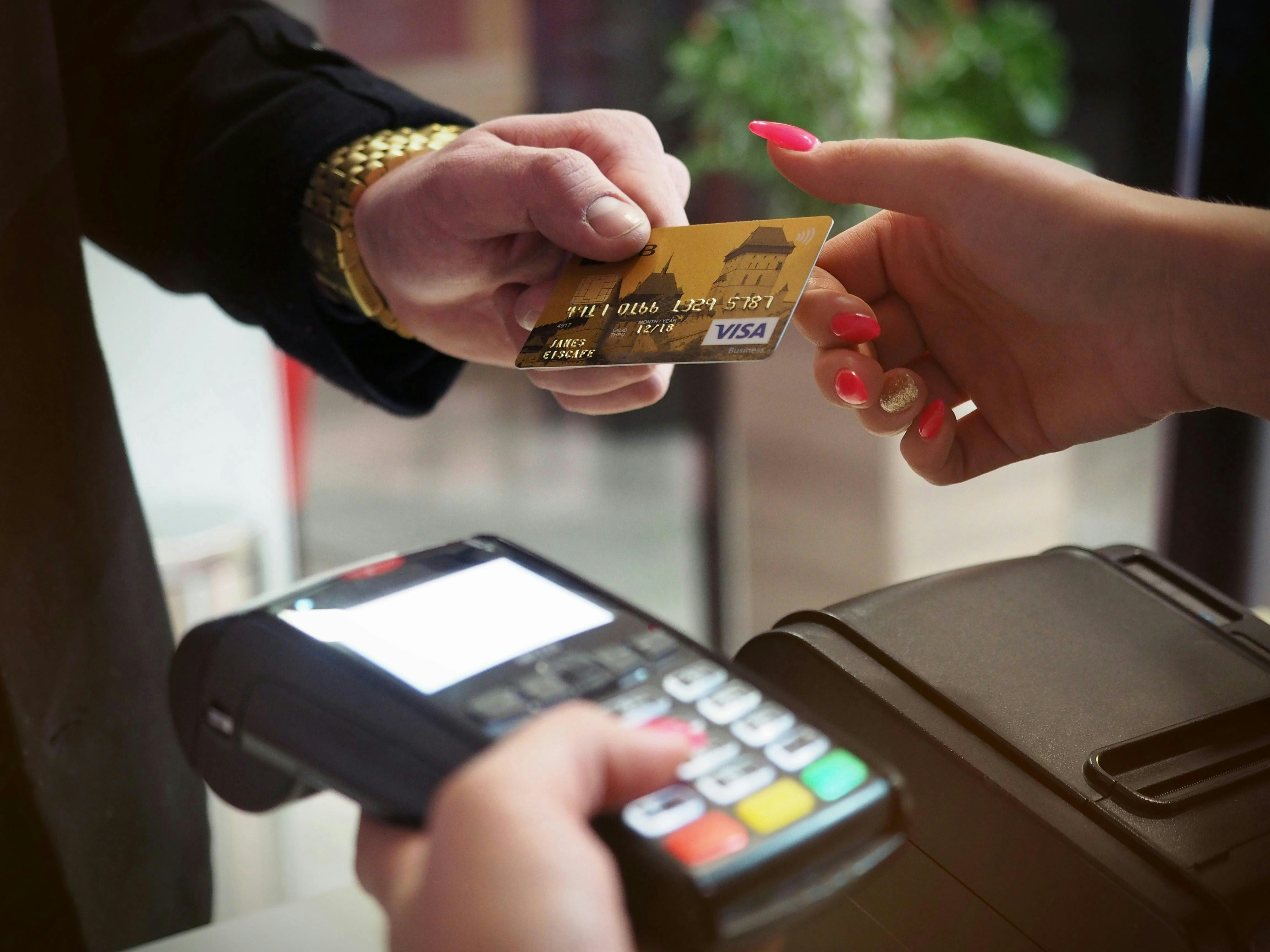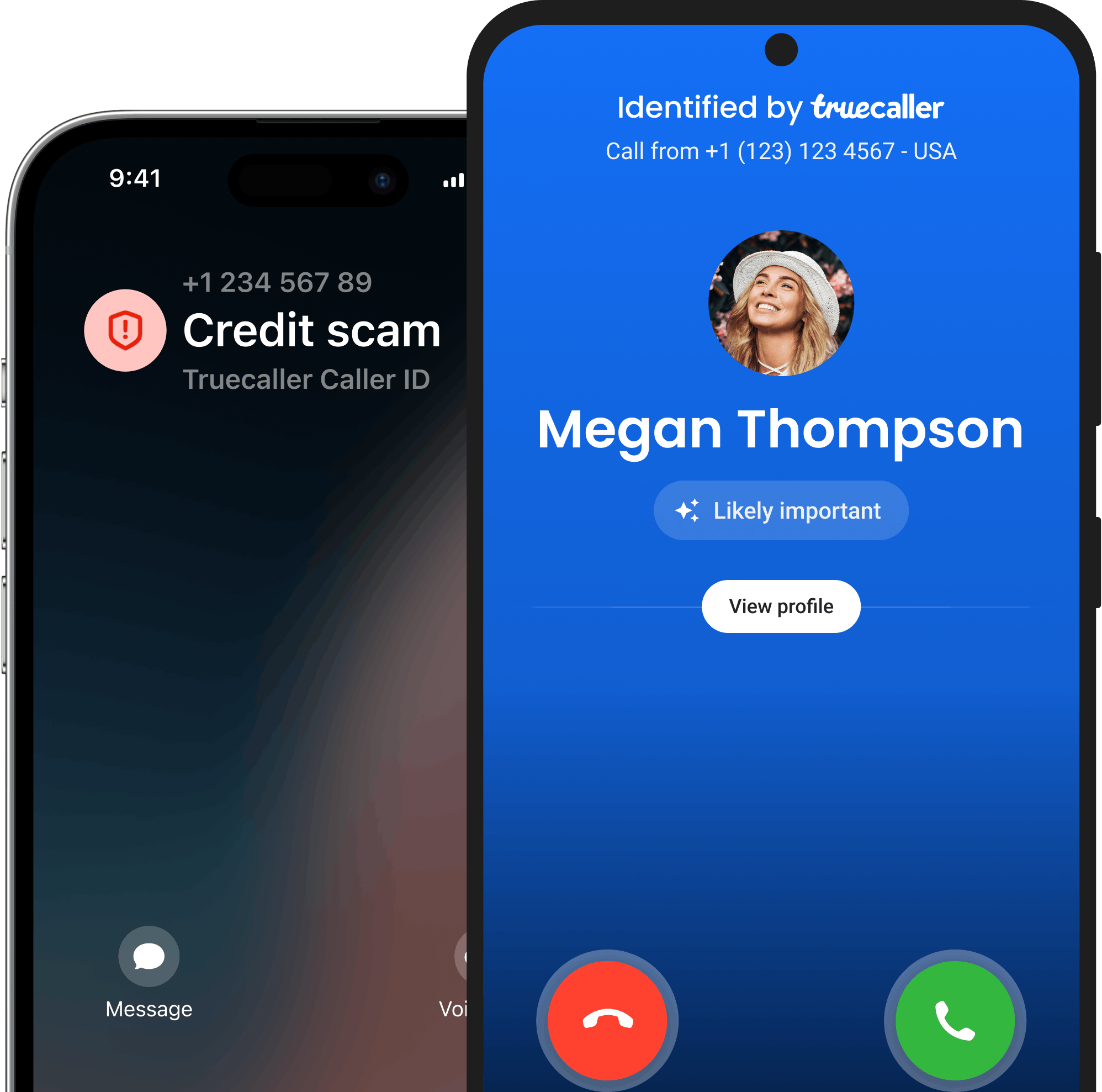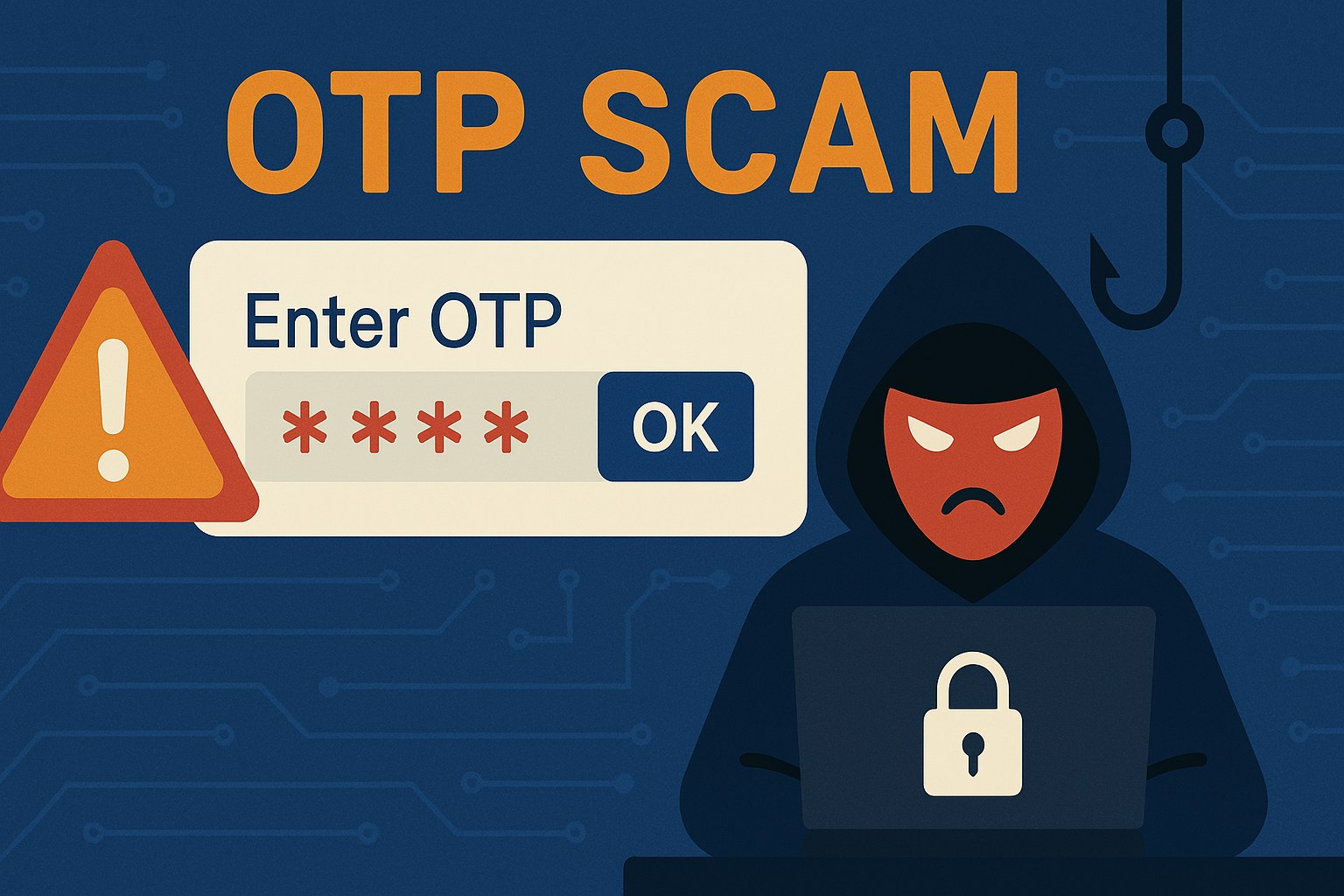
OTP Scams
What are OTP scams or one time password scams?
OTP scams occur when unsuspecting individuals share one-time passwords with cybercriminals, who then exploit them to hack accounts, steal money and identities, or even swap SIMs. This article will explore the various techniques used in such scams.
Common methods used by OTP scammers
Scammers often use deceptive messages such as "Your account has been hacked," "Your bank account will be frozen," or "Did you authorize this large transaction?" to create a sense of urgency and panic. They often pose as representatives of financial institutions, banks, or e-commerce platforms and manipulate individuals into sharing their one-time passwords (OTPs). After getting the OTP, scammers gain unauthorized access to the victim’s account which potentially leads to financial loss and data compromise. Such types of scams are very popular in Southeast Asia and the USA.
SIM swapping is becoming an increasingly serious problem, especially in India, Europe, Nigeria and the U.S. The most troubling part is that most victims don’t even realize they’ve been scammed until their phone suddenly stops working. Cyber criminals do so by gathering victim’s personal information from the dark web and by following their digital footprint. Then they talk to the mobile operators acting as the victim and try to convince them to activate the new SIM in their own device. Once they gain control of the victim’s phone number, they intercept OTPs and access financial accounts with ease and reset passwords.
In India, for example, scammers call victims pretending to be from a telecom company, offering a free 5G SIM upgrade. They then trick the victim into sharing an OTP, claiming it’s required to complete the upgrade. Once the OTP is provided, the original SIM gets deactivated, and the scammer takes full control of the victim’s phone.
Cybercriminals create fake websites and login pages to deceive individuals into giving up their personal details. These links are either sent directly to individuals or left floating on the internet, waiting for a potential victim. They look very similar to the original website, fooling unsuspecting users. Upon entering their username and password, victims receive an OTP, which they believe is authentic, but instead, it grants the scammer access to their account. One of the significant risks associated with OTP sharing is that cyber scammers can use an individual's social media accounts to scam other people in their friend list by assuming their identity. Such scams have claimed many victims in India and the USA.
Installing unknown apps and software without verifying their authenticity or clicking on links that secretly download and install malicious applications in the background is a sure way to become a scam victim. Such software can intercept OTPs received via SMS, enabling scammers to bypass two-factor authentication. Many countries including Singapore, India, UK, USA and Australia have reported such cases.
Scammers often list fake customer support numbers on fraudulent websites. When unsuspecting victims call these numbers, the scammers trick them into sharing the OTPs they receive on their phones under the pretense of helping them ‘resolve the issue.’ By the time victims realize what has happened, it is already too late. Many people in South Africa, Australia, India, Nigeria, and the USA have fallen victim to such scams.
How people fall victims to an OTP scam
It’s hard to stay on guard all the time, but with the rising number of cyber crimes every day, it has become necessary. Let’s explore the situations in which people fall victim to these crimes.
- Lack of awareness about OTP security - OTPs or one-time passwords should not be shared with anyone. No legit customer care executive or bank official would ask you for that. Apps like Truecaller can help identify scam callers, detect spoofed AI voices, and filter out fraudulent SMS senders.
- Fear and urgency - It may seem difficult, but staying calm and composed is crucial if someone is pressuring you to share your OTP to "fix an issue." The more persistent they are, the higher the chances they are scammers. Don’t let urgency cloud your judgment. If in doubt, hang up immediately and reach out to the official customer support or relevant authorities—never share your OTP.
- Not being careful with random links - If you don’t recognize the source, never click on random links. Scammers create fake websites that mimic legitimate banking or e-commerce portals, tricking you into entering your OTP. Falling for such traps can result in huge financial losses and identity theft. Always verify links before clicking and access official websites directly.
How Truecaller can help protect against OTP scams
One of the foolproof ways to protect yourself from fraudulent activities is to download the Truecaller app. It is your trusted AI-powered friend, a leading caller ID and spam-blocking app that identifies unknown numbers, blocks scammers, and verifies legitimate businesses. It can detect spoofed numbers and block phishing attempts, ultimately reducing the risk of OTP-related scams.
Best practices for OTP fraud prevention
- Do not share your OTPs with anyone
- Practice caution if someone is creating a high pressure situation and asking for OTP.
- Immediately hangup and contact said authority through official channels
- Do not click on the links received via SMS, WhatsApp, or emails from unknown sources
- Install apps from official stores only or only trusted sources
- Keep your operating system and security software updated to protect against vulnerabilities
- Enable SIM lock
Steps to take if you've been a victim of OTP fraud
- Change your account passwords if possible, and immediately contact your bank or the customer care of the affected official portals.
- Log out of all active sessions
- If there’s no network on your phone, contact your mobile operator, explain the situation, and request to block your SIM
- Regularly check your bank statements for any signs of financial fraud
Whom to report to after a OTP scam?
If you've been a victim of an OTP scam, reach out to
- Your local law enforcement agency.
- Your bank to stop any transactions if possible
- Download Truecaller for future safeguarding. It has an extensive community and also shares regular scam alerts to its app users. Also, report the number here so that the community is also safeguarded.
Country wise reporting authorities for OTP Scams
If you are in the United States, these could be some agencies you could reach out to:
- Federal trade commission: https://consumer.ftc.gov/features/pass-it-on/charity-fraud
- Internet crime complaint centre: https://www.ic3.gov/
Reporting the scam on Truecaller will help prevent others from becoming victims.
- For immediate assistance and guidance on cyber fraud, call 1930 (toll-free)
- Serious Fraud Investigation Office: https://sfio.gov.in/
- Chakshu - Report suspected fraud communication:
https://services.india.gov.in/service/detail/chakshu-report-suspected-fraud-communication
- Sanchar Saathi: https://sancharsaathi.gov.in/sfc/Home/sfc-complaint.jsp
Reporting the scam on Truecaller will help prevent others from becoming victims.
- Police Special Fraud Unit (PSFU)
Email: report@specialfraudunit.org.ng, pro@specialfraudunit.org.ng
Whatsapp: 08127609914
Voice Call/SMS: 07082276895
Social Media: Facebook - Economic and Financial Crimes Commission (EFCC)
Email: info@efcc.gov.ng
Phone number: +234 8093322644, +234 (9) 9044751
Social Media: Facebook, Twitter, Instagram - Independent Corrupt Practices Commission (ICPC)
Email: info@icpc.gov.ng
Phone number: 08076369259, 08076369260
Social Media: Instagram, Twitter, Facebook
Reporting the scam on Truecaller will help prevent others from becoming victims.
- Action fraud: https://www.actionfraud.police.uk/charities
- Fundraising regulator: https://www.fundraisingregulator.org.uk/complaints
- GOV.UK: https://www.gov.uk/report-suspicious-emails-websites-phishing
- National cyber security centre: https://www.ncsc.gov.uk/
Reporting the scam on Truecaller will help prevent others from becoming victims.
- CSA Singapore: https://www.csa.gov.sg/cyber-aid
- File a police report at https://eservices1.police.gov.sg
Reporting the scam on Truecaller will help prevent others from becoming victims.
- Scamwatch: https://www.scamwatch.gov.au/
- Email: ReportScams@ato.gov.au
- Scam helpdesk: https://www.servicesaustralia.gov.au/phone-us?context=64107#scams
Reporting the scam on Truecaller will help prevent others from becoming victims.
- South African Fraud Prevention Service: https://cybercrime.org.za/reporting
- Internet Service Providers’ Association (ISPA): https://ispa.org.za/safety/report-cybercrime/
- In case of SIM fraud, please contact your mobile service provider
Reporting the scam on Truecaller will help prevent others from becoming victims.
Conclusion
OTP scams are preventable if individuals stay vigilant and don’t fall for fear tactics or urgency. Understand that no reputable e-commerce portal, bank, telecom operator, or government official will ever pressure you to share sensitive information like OTPs. Always use official channels if something seems suspicious, verify links before clicking, and rely on apps like Truecaller for an extra layer of protection.
Do you know?
1. What is an OTP
OTPs, or one-time passwords, are a modern method of authenticating transactions or login sessions. However, OTP-based transaction verification is primarily required in India. They are highly effective and add an extra layer of security by requiring a second step after entering a password. As a key component of two-factor authentication, OTPs help protect accounts from unauthorized access.
2. How do OTPs work?
OTPs are generated by an algorithm, producing a unique code each time they are initiated. Users typically receive OTPs via SMS or email. To complete a transaction or login, they must enter the OTP as part of the verification process.
3. Benefits of OTP
One-time passwords (OTPs) provide a significant security advantage by adding an additional layer of protection against unauthorized access. Unlike passwords, which can be intercepted or compromised, OTPs are dynamic and valid for a single use, making them significantly more secure against cyber crimes.





